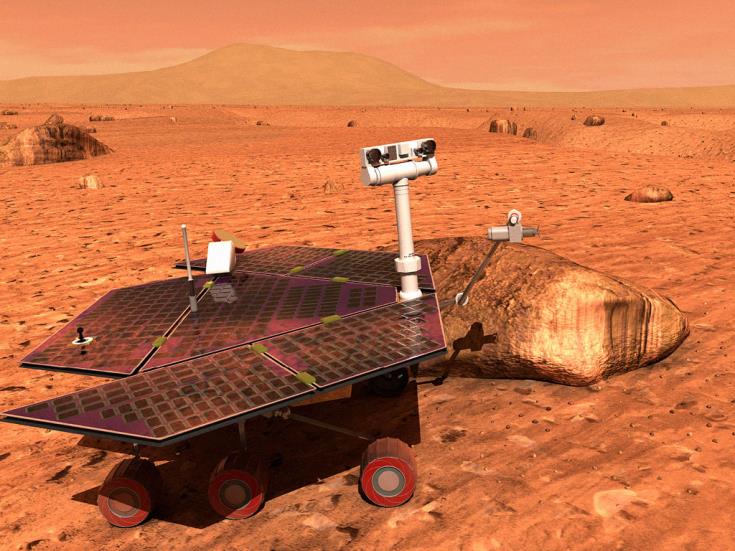Cyprus has become a member of the international Mars Society, which seeks to promote the exploration and colonization of the planet.
The Cyprus Space Exploration Organisation (CSEO) concluded an agreement through which the Cypriot chapter of the Mars Society is founded.
The local chapter will drive Mars-related research domestically and in cooperation with other nations (www.marssociety.cy).
CSEO is currently conducting R&D on Mars-related instrumentation in cooperation with a number of institutions around the world.
Mars is the fourth planet in our solar system. NASA plans to send the first humans to Mars in the late 2030s.
Long-term plans are to create a human colony on the red planet, making humankind a multi-planetary species.
CSEO President George Danos told CNA that the agreement enhances the international competitiveness of Cyprus in an important technological field, by building a high-profile network of partners.
President of the CSEO International Council Professor Marcello Coradini, renowned top ESA/NASA scientist, has welcomed the agreement saying that all humans, hence all nations, have a right and an obligation to participate to the new explorations.
“Only benefits can spring out from participating in the Mars Society: science, technology, adventure, philosophy and courage to dream characterize all the members of the Society. Cyprus certainly is not missing any of those!” Coradini said in a message.
Top scientists from around the world who study the upper atmosphere of Mars have decided that Cyprus’ capital, Nicosia, will become their permanent venue for the meetings they hold every two years.
Members of the Mars Upper Atmosphere Network (MUAN), held a meeting in Nicosia two years ago during which they discussed international co-operation for future exploration missions to Mars.
NASA Chief Scientist Dr James Green, who participated in the conference, has told CNA, that in our lifetime we will answer the question if we are alone in the cosmos, noting that the next 30 to 40 years will be very exciting in terms of space exploration.
CSEO members are also involved in space exploration.
Dr Constantinos Charalambous a Cypriot planetary scientist and research member of CSEO is working with NASA on its InSight mission on Mars.
The Cypriot scientist was given by NASA the opportunity to name two rocks on the red planet, which he honoured with his birth roots by selecting the names “moutti” (nose) and “zavos” (askew, pointing at an angle) from the Cypriot dialect.
The Mars Society is the world`s largest and most influential space advocacy organization dedicated to the human exploration and settlement of the planet Mars.
Established by Dr. Robert Zubrin and others in 1998, the group works to educate the public, the media and the government on the benefits of exploring Mars and creating a permanent human presence on the Red Planet.
Among planetary bodies in our solar system, Mars is singular in that it possesses all the raw materials required to support not only life but a new branch of human civilization.
The Space Exploration Organisation is the official representative of Cyprus to the world`s leading space organisations. (source CNA)







